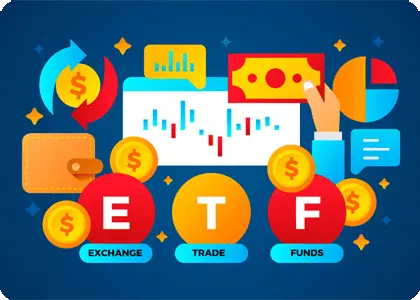Mutual and exchange-traded funds (ETFs) offer diversification and access to professional management but differ in structure and performance characteristics.
Mutual funds close out at the end of the trading day. When buying mutual fund shares, it is considered executed after the market closes; therefore, you invest in the fund at the closing rate, also known as Net Asset Value or NAV. They are mandated to have minimums and can be bought/sold only once daily.
But an exchange-traded fund trades on a stock exchange like any individual stock. This means that their prices fluctuate during the trading day, and you can buy and sell them at the market price offered by the stock exchange for as long as it’s open. ETFs also tend to have lower management fees than mutual funds and do not require minimum investment. Thus they are tax-efficient, making them an attractive option for cost-sensitive investors.
Mutual funds and ETFs differ in investment strategy. If you are looking for simplicity and don’t mind having your mutual fund priced daily but want to make your investment sales over-the-counter, mutual funds will do just fine. Still, for a portfolio that requires flexibility, low expense, and intraday trading, ETFs are better suited.









